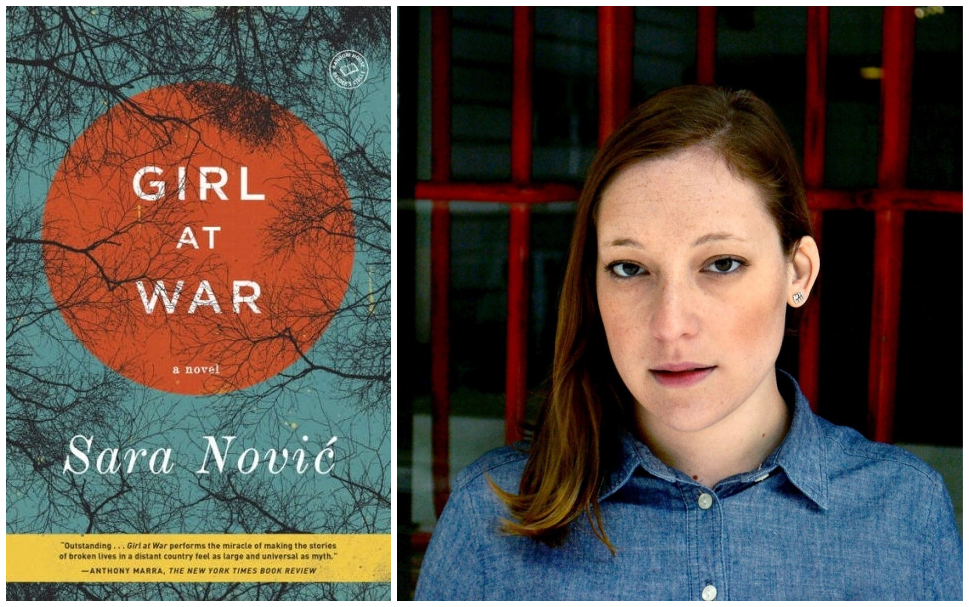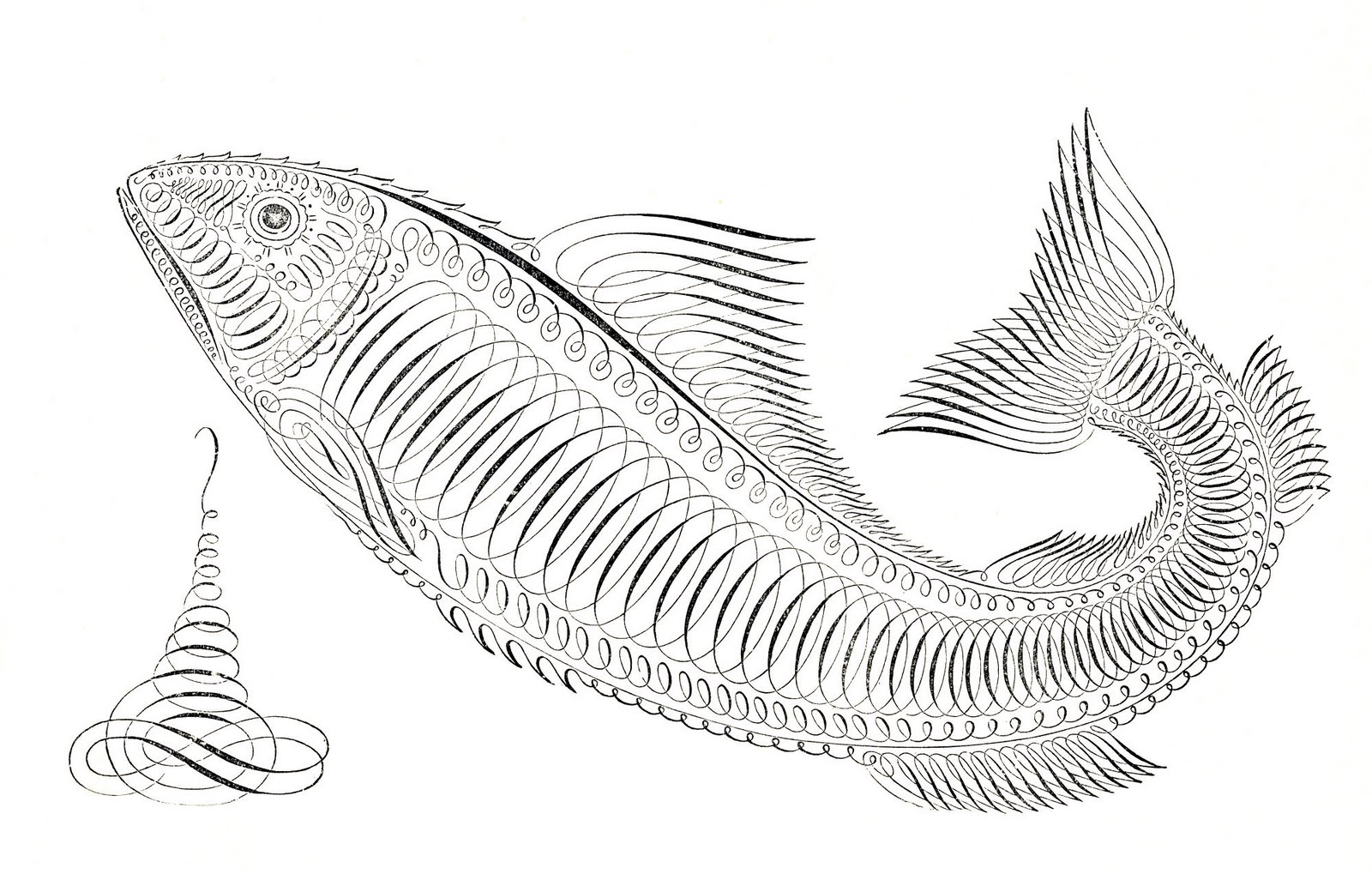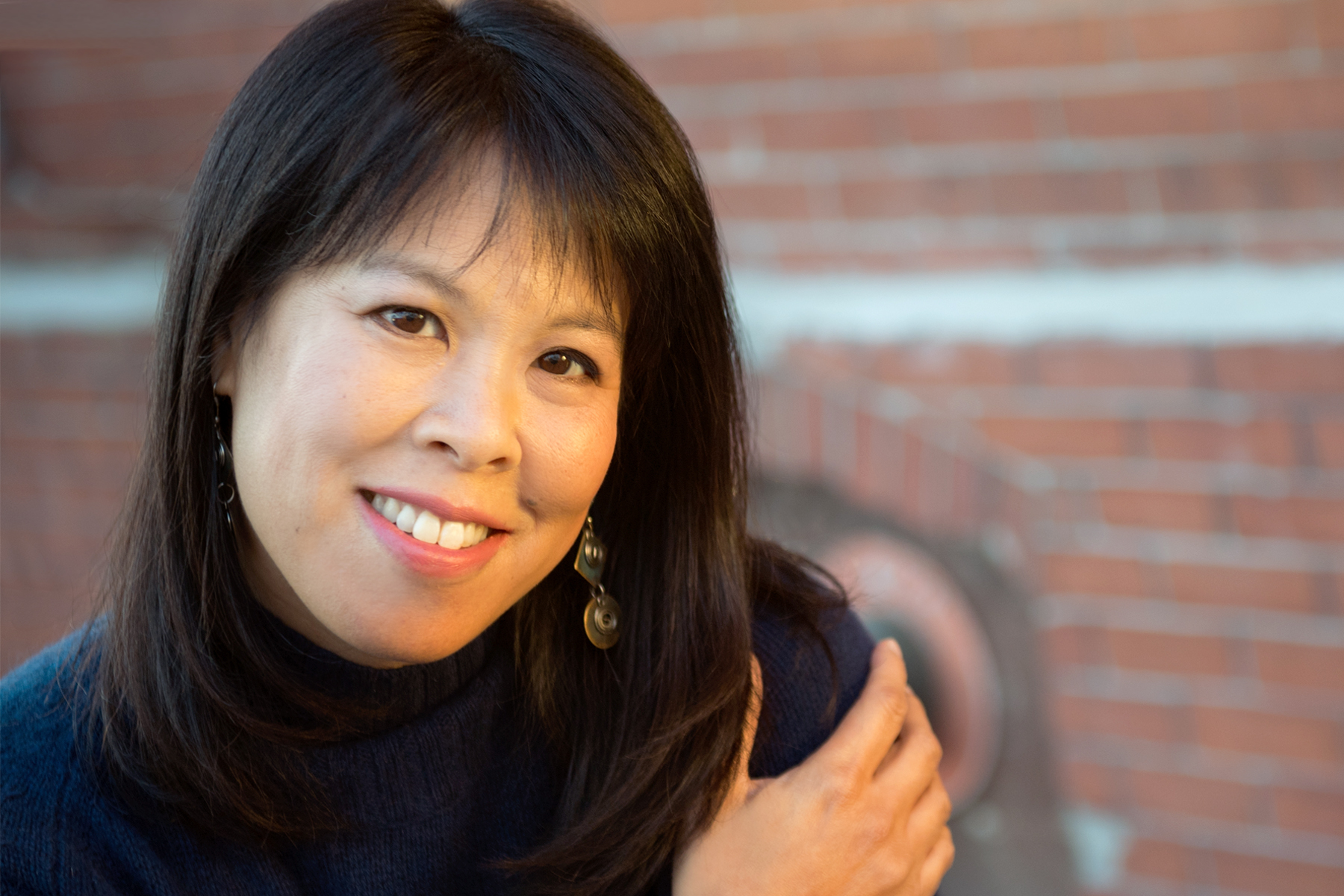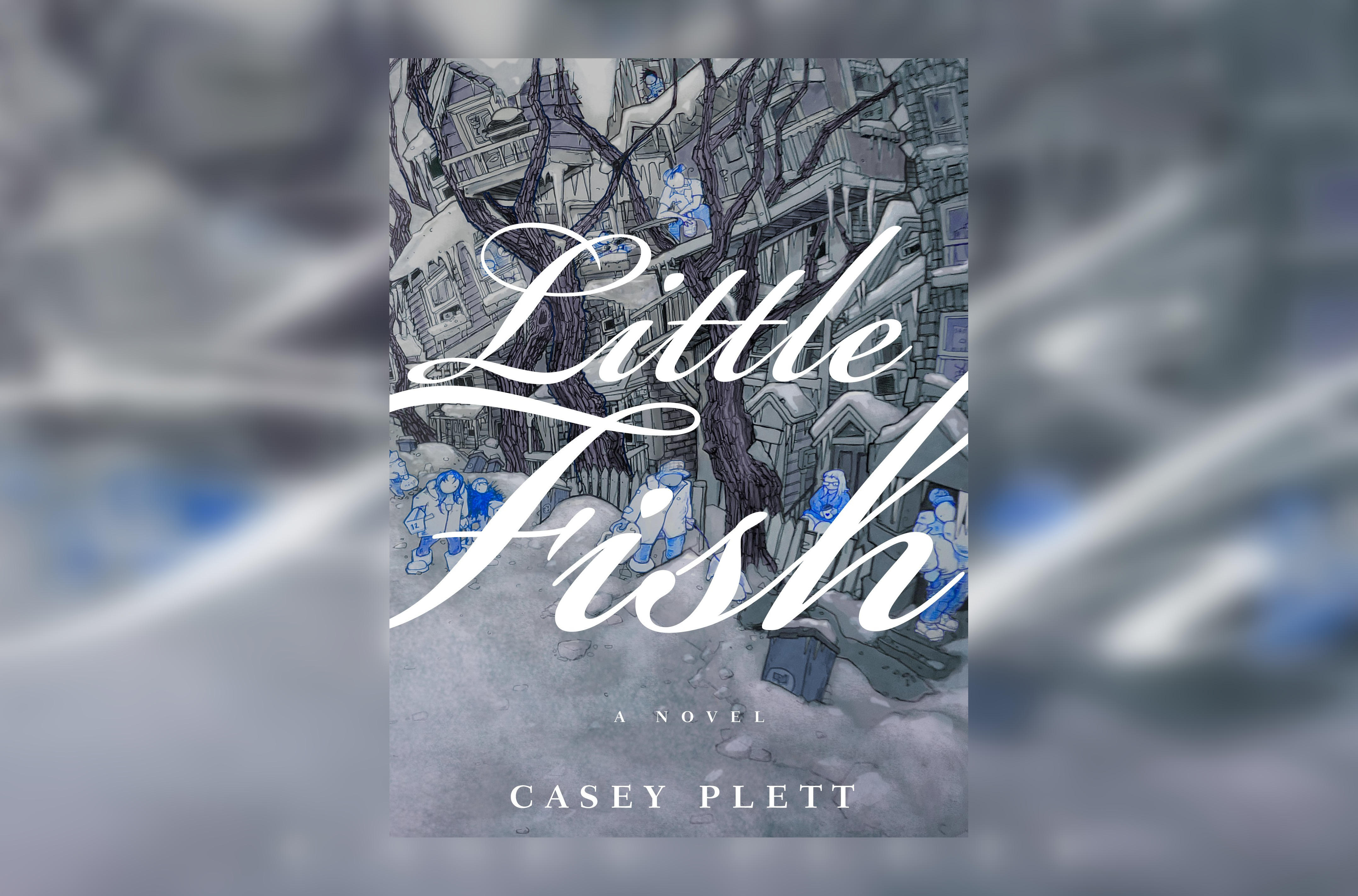We’re in the midst of a blizzard and the Hungarian Pastry Shop, arguably the Upper West Side’s coziest nook for freelancers and finals-frenzied students, is all abuzz with keyboard clicks, low chatter, and clinking coffee spoons. I’m here to meet with the Jia Tolentino, the New Yorker’s online staff writer of note, but it takes me a good five minutes to spot her in the crowd because I don’t know what kind of face to match with the powerful, polemic writing that’s made me seek her out. The petite, stylish blonde woman I meet is clever and friendly, offering me a bite of her cinnamon-raisin danish and wrapping up a quick email to her editor. She has an editor. At the New Yorker. She’s my age.
Erica Stisser: You’re so young to be at such a successful spot in your career. How did you get here? What inspired you to start writing, and how did you turn that into a viable profession?
Jia Tolentino: I didn’t think I would be able to turn writing into a viable profession until a few years ago. I’ve been working under the assumption that every opportunity is a fluke that might slip away. In college, the recession hit when I was a junior and I didn’t know anyone in New York, or in media, and I didn’t have any experience. I had taken creative writing classes on the side every semester for fun, and I had a sense that writing was the one thing I was good at, but I assumed I would end up in teaching or nonprofit work. I joined the Peace Corps after college. But then in the Peace Corps I kept writing fiction and little stories for my friends. I spent a lot of time working on this terrible chick lit novel, but then my laptop got stolen. I was so crushed. Not really by losing the novel, because it was horrible—but I realized that I took my writing more seriously and more personally than I’d thought, I guess. And then my beautiful friend lent me his laptop and I kept writing and I started to take it more seriously.
I came back from Peace Corps, started copywriting, grant writing. I was still writing fiction, a new novel, and wanted to see if it was good, so I applied to some fully funded fiction programs. I got into Michigan, which seemed like a sign that it was at least worth continuing to try. And then Michigan was so good, so generous, that I got antsy with all my spare time and started freelancing, mostly for the Awl network. In 2012, Emma Carmichael brought me onto the The Hairpin as a part-time editor. Within that year, she became one of my best friends, even though we had never talked before when she hired me. It still feels amazing to have had that kind of luck—a thoroughly life-changing friendship.
ES: You were working remotely?
JT: Yep. I realized that I liked editing a lot. At the Hairpin I was editing a lot of first-time writers, a lot of personal essays, which I loved. It satisfied that journalistic curiosity of getting inside someone’s mind and understanding the most intense thing that’s ever happened to them.
When Emma got hired at Jezebel as editor-in-chief, she asked me if I wanted to come over with her—to move to New York and work as features editor. I figured it was a good time to really give this industry a try. When I started my MFA I wasn’t yet calling myself a writer. And then, around one year in, freelancing for the Hairpin and getting better through the program, I thought, okay, I think this could be my job, I think I could feasibly be a writer for a living.
At Jezebel, I edited features and blog posts—we ran a post every 20 minutes from 9 AM to 9 PM, and a couple features a day. I liked the work, and how hectic it was. I took some meetings, but I didn’t want to leave Gawker. I felt wary of the idea that I should be trying to stairstep up the prestige ladder as quickly as possible. I felt that I had a lot to learn from a place like Gawker, where you had complete control over your work and a constant education in the hellish state of online discourse. Gawker was also a sort of early warning system for a lot of things—Gamergate, digital unionization, billionaire meddling. I had a sense that the total freedom we had would not be possible for very long.
ES: Yeah.
JT: And then in 2016 Gawker went bankrupt, lost the case in Florida. I accepted a job offer at the New Yorker that day. By that point I was very ready to learn a very different set of things—to be edited super hard, to try to work up to these high editorial standards. I think my work life has been half luck, half me just blindly chasing whatever seems really fun and really hard at the same time. I’m also a very compulsive writer. I will fill any space of my time with writing. At Jezebel I edited all day and then I would write at night a lot.
ES: How are you aware of your audience when you do that? How do you keep your audience in mind in general when you write?
JT: I don’t know how sustainable this is, but I don’t think about audience at all. I write mostly to satisfy myself, to write through things I can’t figure out without writing about them. Or I’m even just figuring out what I want to figure out—sort of setting the clock of the piece to an internal time. This might come from starting out as a blogger. With blogging you really have to amuse yourself, which is why blogging is this boot camp for developing a voice. It’s also like a mental clearing house—I approached it with the viewpoint of, here’s something I’m obsessed with, if I give it my best shot maybe I’ll never have to think about it again.
I do sometimes try to tone-correct by imagining that my smartest and funniest friend is reading a piece. You want to write towards a reader who respects you, even though that’s not always what’s going to happen—you might as well act as if that’s the case, you know? You can always tell when a writer doesn’t respect his or her readers, feels superior to them. I also try to keep an argument tight by asking myself at the end of a draft if somebody who completely disagrees with my politics could still read it and understand that I’m writing honestly. Writing about women’s issues is good for working out that test.
ES: Makes me think of your piece on the 32-week abortion.
JT: Right. With that, I tried to just be as clear about the facts as possible—to use the medium of the interview to draw out all the things that would come out in conversation with a friend, that are known among women who have been through late abortion and late miscarriage, but don’t break the surface of the abortion conversation normally. After that piece, actually, I got a lot of pro-life people emailing me saying that they were rethinking their stance, which felt like the most incredible thing. There’s nothing harder right now than changing somebody’s mind. It seems almost impossible.
I guess I do think about audience in terms of—what specific forms of freedom and opportunity do I get from this outlet? Like at Gawker, it was the right place to be adversarial and punchy and caustic and vulgar. Jezebel was a really good platform to push back on mainstream market feminism. I recently wrote a magazine piece on Millennials for the New Yorker, and had to regularly remind myself, the reader is not necessarily a leftist 28 year old—you have to understand, and make the most of, the fact that the core audience of this magazine is not precisely you.
But mostly I don’t think about it. Because I think a lot of writers go nuts thinking about what people think about them or their work.
ES: You’re entering this conversation of mainstream feminism in a way that’s not just talking about issues, but actually encouraging actionable steps. I think that’s really important.
JT: That’s really, really nice to hear.
ES: And obviously that’s what we need right now, to be actionable. When you’re writing these kinds of pieces directed towards young women and towards people who need to be thinking about the issues they face, how are you trying to write them in a way that’s making us stop talking and start acting? Or are you not even thinking about it?
JT: One of the easiest traps to fall into in writing is reaching for a conclusion that should be your premise. Or having a premise and conclusion that are identical, which is almost never good. In 2015, I wrote about the outrage cycle, which tends to make a reaction seem like an endpoint of a political process when it should really be the beginning of one. And in that piece I was writing about online feminism, which seemed, particularly at the time, to keep centering around the question of, what kind of a woman am I? What kind of feminist am I? But defining an identity very precisely is not really an endpoint for me. I’m more interested in figuring out how we actually get to interact with the world in a different way.
But I don’t know. There was also a while, at Jezebel, where I tried writing heavily argued pieces with no conclusion. And at a time when everything is so overweighted with, like, “And now, more than ever, this is why…”—it’s nice to write about things like Large Adult Sons.
ES: Yeah.
JT: Pieces that are obviously not that deep.
ES: But they still make you think about culture on a more micro level.
JT: Sure, yeah. Or just allow you to recalibrate your tone in a way that feels to me more honest.
ES: You use humor a lot to that effect – I’m thinking of your piece on Cracker Barrel. I think a lot of writers struggle not to use humor in a superfluous way. Often it feels more like a garnish than a tool and writers shy away from it because they fear it’ll make them look unprofessional, especially women writers.
JT: The garnish thing is right—humor as a flourish rather than sort of an approach. I guess I’ve never thought about how I use it. I think I have a good sense of humor, but I don’t think I’m funny. I just make it clear when I think other things are funny. It was encouraged, at Gawker, to throw your voice around and use a lot of different registers. I would sometimes write stupid little blogs where I was maniacally exhilarated, almost histrionic, which is a tone I like.
I wonder if writers are afraid to use humor or if the ability to do so is just genuinely rare. A really funny fiction writer is a diamond in the fucking rough. I think Alissa Nutting is really funny, Elif Batuman. There’s a deep sort of humor that’s literary that comes from the void. I think about this George Saunders piece about Dubai that is incredibly funny, but from a place of profound existential panic. I wonder, what you’re saying about women using humor, if it’s a matter of register—that women aren’t often given the space to really get in the void.
ES: It makes me think of female comics. In that world, it’s like they’re just barely being seen on the fringes of comedy.
JT: Right. And I’m writing an essay about heroines right now, and, you know, the hero’s journey is about transcending his circumstances and examining the human condition. But the heroine’s journey is the journey of a woman completely enmeshed within the social fabric. Even to challenge that tradition, as with Elena Ferrante, is to engage with it.
Part II of this interview is now online, available here.




